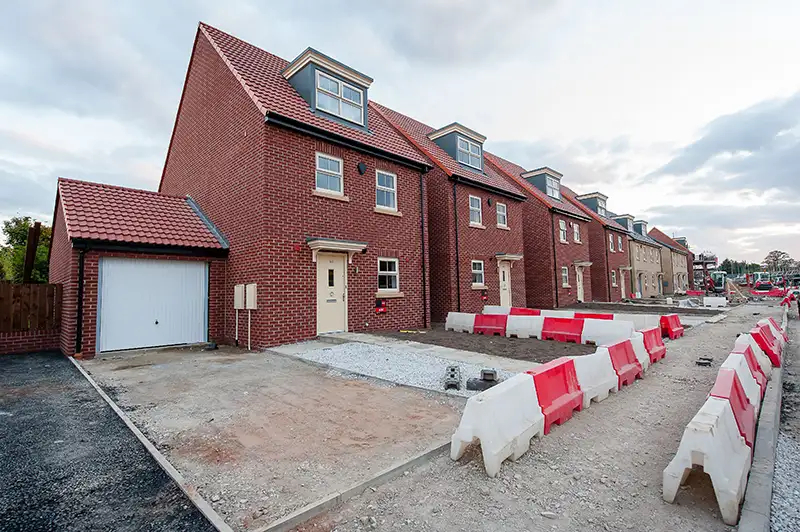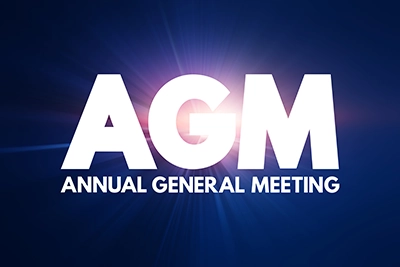This Update includes the following

Housing Policy Update
In a major policy speech on 30th July Angela Raynor, Deputy Prime Minister and Housing Secretary, set out how the new government intends to deliver on the Party’s manifesto commitments on housing. The Secretary of State has also written to local authorities setting out the detail of the government’s programme. Read letter here
Planning Reform
Reform of the planning system is regarded as the key to addressing current housing shortages and delivering wider economic growth. A consultation covering changes to the National Planning Policy Framework (NPPF) was issued to coincide with Angela Raynor’s policy statement. The consultation includes the following proposed changes:
- A new mandatory standard methodology for assessing housing need and a requirement for local authorities to plan for the resulting figure.
- A requirement to identify ‘grey belt’ land within the Green Belt, to be brought forward into the planning system.
- New “golden rules” for land released in the Green Belt to ensure it delivers in the public interest including a requirement that development should include 50% affordable homes along infrastructure such as schools and GP surgeries.
- Broadening the existing definition of brownfield land and a strengthened expectation that applications on brownfield sites will be approved.
- Raising building densities in urban areas.
- Clarifications around the ‘presumption in favour of sustainable development’ including new safeguards against poor quality development.
Housing Targets
Mandatory housing targets are to be reinstated requiring all councils in England to plan for increased housebuilding in their areas. The target set out in the Labour manifesto of 1.5 million homes over the life of the Parliament has been uplifted from 300,000 homes per year to just over 370,000 homes per year. This reflects a change in the methodology for calculating targets to ensure development is proportionate to the size of existing communities, while adding an extra level of ambition in the most unaffordable areas. The target for London has been reduced from 100,000 homes to around 80,000 homes per year.
Green Belt Land
Commitments to focus development on previously developed brownfield sites remain, however there is an expectation that in order to achieve housebuilding targets, councils will need to consider development on parts of the Green Belt that are of low environmental quality, referred to as the ‘grey belt’.
Social Housing
The Secretary of State confirmed that the government has ambitious plans for social and affordable housing, namely to ‘deliver the biggest boost to social and affordable housing in a generation’. Detailed plans will be brought forward as part of the multiyear spending review due to conclude in Spring 2025.
There will also be an announcement on future social housing rents as part of the Autumn Budget Statement on the 30th October which will ensure council housing finances are put onto a secure footing with rent stability enabling councils ‘to be able to borrow and invest in new and existing homes’.
Right to Buy
The Government has announced a review of the Right to Buy including eligibility criteria and protections for new homes. A consultation on changes will be issued in the autumn. The increased Right to Buy discounts introduced in 2012 will also be reviewed and changes implemented via secondary legislation.
Increased flexibilities on how councils can use Right to Buy receipts have also been announced. The following changes will come into effect immediately and will apply for 2 years initially, subject to review:
- Removing the cap on the percentage of replacements homes that can be delivered as acquisitions.
- Removing the 50% cap on the level of RTB receipts that can be used to fund the cost of a replacement home.
- Allowing councils to combine Right to Buy receipts with section 106 contributions.
Awaab’s Law
The Government has also confirmed that Awaab’s Law will be introduced into the social rented sector, with more detail and secondary legislation to implement this in due course.
Housing Legislation in the King’s Speech
The official opening of Parliament and the King’s Speech on 17th July set out the new Government’s planned legislative programme for the first parliamentary session. There are 4 Bills directly relevant to housing.
The Planning and Infrastructure Bill aims to speed up development by delivering improvements to the planning system including:
- Modernising planning committees and increasing capacity at the local planning authority level.
- Changing the rules surrounding Nationally Significant Infrastructure Projects to accelerate the planning permission process.
- Unlocking more sites for development through reform of the compulsory purchase compensation rules. The proposals aim to ensure that compensation paid to landowners is “fair but not excessive” in cases involving affordable housing and other important social and physical infrastructure.
- Using developer nature recovery contributions to help unlock stalled development sites.
The Renters Rights Bill is a carryover from the Conservative administration; a similar Bill was a casualty when the General Election was called unexpectedly. The King’s speech confirms that the Labour government will seek to continue the proposed rental sector reforms along with some additional measures. The key areas to be covered by this legislation are:
- Abolishing Section 21 ‘no fault evictions’ alongside clear and expanded possession grounds so landlords can reclaim their properties when they need to.
- Strengthening tenants’ rights and protections, including enabling tenants to challenge excessive rent and new laws to end the practice of rental bidding wars by landlords and letting agents.
- Giving tenants the right to request a pet, which landlords must consider and cannot unreasonably refuse.
- Applying a Decent Homes Standard to the private rented sector – tackling the blight of poor-quality homes.
- Applying ‘Awaab’s Law’ to the private rented sector.
- Creating a digital private rented sector database to bring together key information for landlords, tenants, and councils to target enforcement more effectively.
- A new ombudsman service for the private rented sector that will set up to provide fair, impartial and binding resolution, to both landlords and tenants and reducing the need to go to court.
- Making it illegal for landlords to discriminate against tenants in receipt of benefits or with children when choosing to let their property.
- Measures to strengthen the enforcement powers of local councils including new investigatory powers intended to make it easier for councils to identify and fine unscrupulous landlords.
The Kings Speech also referred to a Draft Leasehold and Commonhold Reform Bill signalling the Government’s intention to re-examine the issue of commonhold and leaseholder rights, with the intention of moving beyond the Conservative government’s Leasehold and Freehold Reform Act. In addition, the English Devolution Bill includes the prospect of further devolution of housing powers to local government level.
Recent Publications
Consumer Regulation Review 2023/24 (published July 2024)
The Regulator of Social Housing has published the annual review of its consumer regulation work for the past year. Although the report covers the period prior to the new regulatory approach, the learning points and case studies are highly relevant in the context of the new standards.
Key messages:
- Landlords must meet all health and safety requirements to keep tenants safe. The report highlights cases where required checks for fire, gas, electrical, asbestos and water safety had not been completed. There were cases where landlords could not provide assurance that all homes had smoke alarms and carbon monoxide detectors. Also, in some cases remedial actions identified in fire risk assessments had not been completed within the specified timescales.
- Landlords are expected to know the condition of the homes they manage and have effective systems and reliable information on condition and quality which is used to ensure tenants homes are good quality, safe and well-maintained.
- Complaints can provide an important source of insight and intelligence for landlords about how their systems are working. Landlords must have the systems in place to learn from complaints when things go wrong.
- Boards and councillors need to understand the required outcomes of the consumer standards and have good oversight and scrutiny arrangements.
- Landlords need to engage effectively with tenants, treating them with fairness and respect.
- Co-regulation requires landlords to refer themselves to RSH when they find a material issue, or a potential material issue, so it can be resolved promptly if required.
Why Councils are underinvesting in housing and how an updated debt settlement could put that right – Joint CIH / Savills Report (July 2024)
This report looks at options for addressing the erosion of the 2012 HRA settlement in recent years which has left HRAs chronically under resourced.
Running through the options available to secure additional funding for council housing, the report makes the case for re-opening the 2012 settlement as the most effective and straightforward approach.
This would involve transferring the estimated £17 billion of unsustainable debt from local authorities to central government enabling council housing finance to become sustainable for the long term, in line with the goal in 2012. An intervention on this scale is required to deliver headroom for investment in existing stock and to recreate the newbuild capacity that existed in 2012.
Radix Big Tent Housing Commission – Public Memorandum to the Housing Minister from Dame Kate Barker CBE (July 2024)
Kate Barker who 20 years ago led a landmark review into housing supply in the UK is currently Chair of the above Commission which aims to propose practical solutions to current housing problems. Following the General Election, the Commission has opted to publish some early policy insights in a memorandum shared with Matthew Pennycock the incoming housing minister.
Switching to social rent: delivering the homes we need – New Economics Foundation (June 2024)
This paper sets out the case for the new government to reform housing grant funding and refocus the programme on social rent. Conservative administrations have concentrated on funding affordable rent and shared ownership at the expense of social rent. The paper argues that this is fiscally inefficient because much of this housing would be viable without grant and funding should therefore be freed up for social rent which is undeliverable without significant grant input.
Addressing the housing crisis will also require fundamental reform of the way housing grant is allocated and administered, bringing an end to Treasury restrictions which have left Affordable Homes Programme (AHP) funding and Housing Infrastructure Fund (HIF) grants unspent.
Diary Date – CWAG Annual General Meeting
This year the CWAG Annual General Meeting will be on Thursday 19th September 2024 (10.00 -12.00). The meeting will take place over Teams. Please note the date in your diary.
Our speaker this year will be Eamon McGoldrick, Managing Director of the National Federation of ALMOs. Eamon will discuss progress on current proposals for sector-led improvement. Recent press reports have highlighted moves to set up a new representative body for council housing to achieve a strong coherent voice on policy matters and new arrangements to promote and share good practice. This is a timely opportunity to find out more about these proposals and consider the implications for councils with ALMOs.
The formal business of the AGM involves electing representatives of the Executive Group as well as reviewing the group’s finances and operating arrangements and Terms of Reference.

